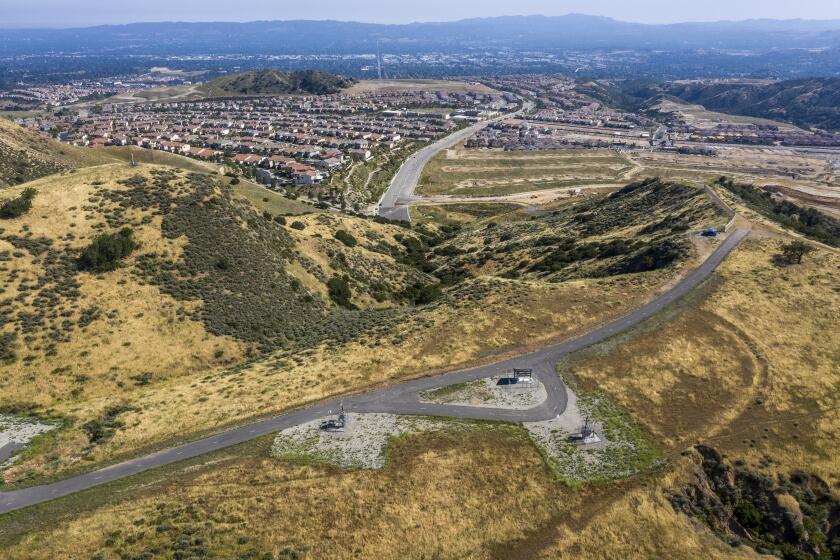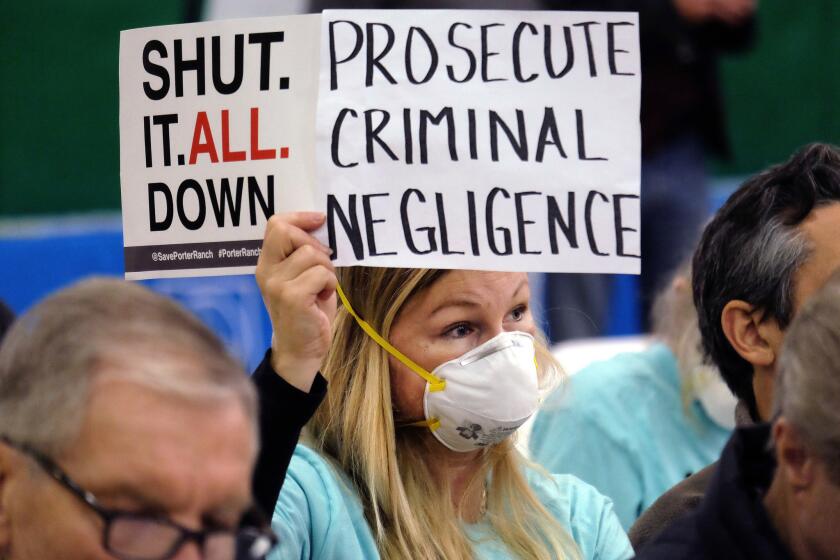Is America’s biggest gas utility abusing customer money? A California watchdog demands answers
The nation’s largest gas utility has spent months fighting an investigation by a California consumer watchdog agency, saying the company’s constitutional rights are being trampled and refusing to give regulators full access to its financial records.
California’s Public Advocates Office says Southern California Gas Co. should be fined millions of dollars for failing to comply with a subpoena. It’s only the latest skirmish between SoCalGas and the consumer watchdog, which is investigating what it describes as the gas company’s inappropriate use of customer money to fight climate change policies.
SoCalGas serves nearly 22 million people from the Central Valley to the U.S.-Mexico border. The company faces a diminished future as a growing number of cities ban gas hookups in new buildings, and as climate activists call for a total phaseout of fossil fuels — a prospect SoCalGas and its parent company, Sempra Energy of San Diego, are determined to avoid.
It’s a preview of a battle that could play out across the country as more governments take steps to slash consumption of natural gas, a planet-warming fossil fuel commonly used for heating, cooking and electricity generation.
Your guide to our clean energy future
Get our Boiling Point newsletter for the latest on the power sector, water wars and more — and what they mean for California.
You may occasionally receive promotional content from the Los Angeles Times.
SoCalGas can spend shareholder money however it wants. But as a state-sanctioned monopoly, it’s required to spend ratepayer money strictly on programs that benefit ratepayers, such as infrastructure upgrades that improve safety or efficiency programs that help customers reduce gas use.
The Public Advocates Office, the consumer watchdog branch of the California Public Utilities Commission, first grew suspicious when it discovered several years ago that SoCalGas had used customer funds to try to block a federal efficiency standard for gas furnaces. The watchdog also unearthed evidence that SoCalGas used ratepayer funds to help create the pro-gas advocacy group Californians for Balanced Energy Solutions, although the company later agreed to bill the work to shareholders instead.
Spurred by those revelations, the Public Advocates Office launched a broader investigation last year to determine where else the utility may have tried to use ratepayer dollars to support pro-gas advocacy.
In response to questions from the consumer watchdog, SoCalGas has acknowledged lobbying government officials for policies that would result in more natural gas-fueled vehicles at the ports of Los Angeles and Long Beach, at Los Angeles International Airport and in L.A. County’s bus fleet. SoCalGas has also acknowledged charging its customers for some of that lobbying, according to documents shared with The Times by the Public Advocates Office.
The company has argued that switching from petroleum-based fuels to natural gas can dramatically reduce air pollution. Environmental groups have instead pushed for electric trucks and buses, which unlike natural gas vehicles have zero emissions.
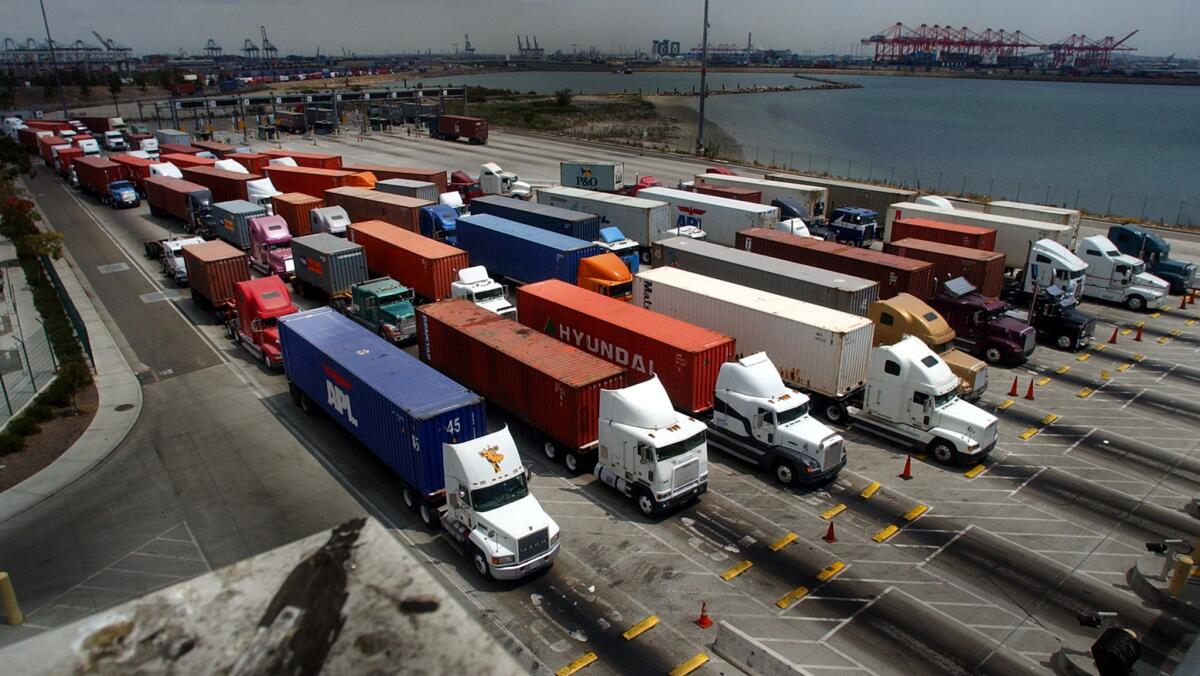
The amount of money SoCalGas has spent lobbying for natural gas vehicles is redacted in the documents provided to The Times. It appears to be relatively small, compared to the nearly $3 billion in sales revenue the company collected in 2018.
The Public Advocates Office also unearthed a March 2019 work order in which a SoCalGas executive authorized nearly $28 million for “balanced energy” activities. In addition to the company’s role in founding Californians for Balanced Energy Solutions, SoCalGas has helped persuade more than 120 city and county governments to pass similarly worded resolutions calling for “balanced energy solutions” — a centerpiece of the company’s efforts to demonstrate widespread opposition to phasing out gas.
Gas company spokesman Chris Gilbride said in an email that the March 2019 work order “does not reflect actual spending” and is “an internal projection of what those costs might look like” over a five-year period. He said the account was established “specifically to make sure those costs are not paid for by ratepayers.”
But the work order characterized all “balanced energy” expenditures as operations and maintenance, which are typically funded by ratepayers. Pressed by the consumer watchdog this year, SoCalGas said the account was initially booked to ratepayers rather than shareholders because of an “inadvertent accounting error” that was later corrected.
After a year of wrangling with the Public Advocates Office, SoCalGas now says additional scrutiny of its actions is warranted.
In a July 17 letter to the Public Utilities Commission, Dan Skopec, the company’s vice president of regulatory affairs, asked the agency to open an investigation into SoCalGas. He cited a “lack of clarity” in where spending ratepayer money is appropriate, writing that “gray areas exist in rate-making treatment for lobbying activity.”
“While such a request is unprecedented, an inquiry is vital for achieving clarity on compliance with commission rules regarding how costs are allocated to ratepayers,” Skopec wrote.
Skopec said the gas company would hire an independent third party to review its accounting. He also asked the commission to clarify for all investor-owned utilities the rules around use of ratepayer funds and what constitutes lobbying.
“Rapidly evolving decarbonization policies and local advocacy in support of them throughout the state present unique challenges for SoCalGas and other entities working in this sector,” Skopec wrote, referring to policies meant to reduce carbon emissions.
Southern California Gas is engaged in a wide-ranging campaign to preserve the role of its pipelines in powering society.
The full extent of the company’s ratepayer-funded lobbying is hard to know, in part because SoCalGas has thus far refused to provide some of the information demanded by the consumer watchdog.
In May, the Public Utilities Commission served SoCalGas with a subpoena, ordering the company to give the Public Advocates Office access to its accounting system. The company said it would comply only if it could shield certain financial records from view, including activities funded entirely by shareholders and documents protected by attorney-client privilege.
“SoCalGas takes seriously its obligations as a regulated entity to make its books and records available to the commission and Cal Advocates on request,” the company wrote, using another name for the Public Advocates Office. “But it must comply with its obligations in a manner that protects its privileged and constitutionally protected information from disclosure to Cal Advocates.”
SoCalGas made similar arguments in response to an earlier data request, saying the Public Advocates Office’s demands amounted to a violation of its rights to free speech and free association. The company said that earlier request — seeking information about political activities that it claims are 100% shareholder-funded — “tramples dangerously on core constitutional rights.”
“That, in turn, has had a substantial chilling effect on SoCalGas’ and others’ exercise of their constitutional rights to associate with each other, petition the government, and engage in free speech,” the utility wrote in December.
Your support helps us deliver the news that matters most. Subscribe to the Los Angeles Times.
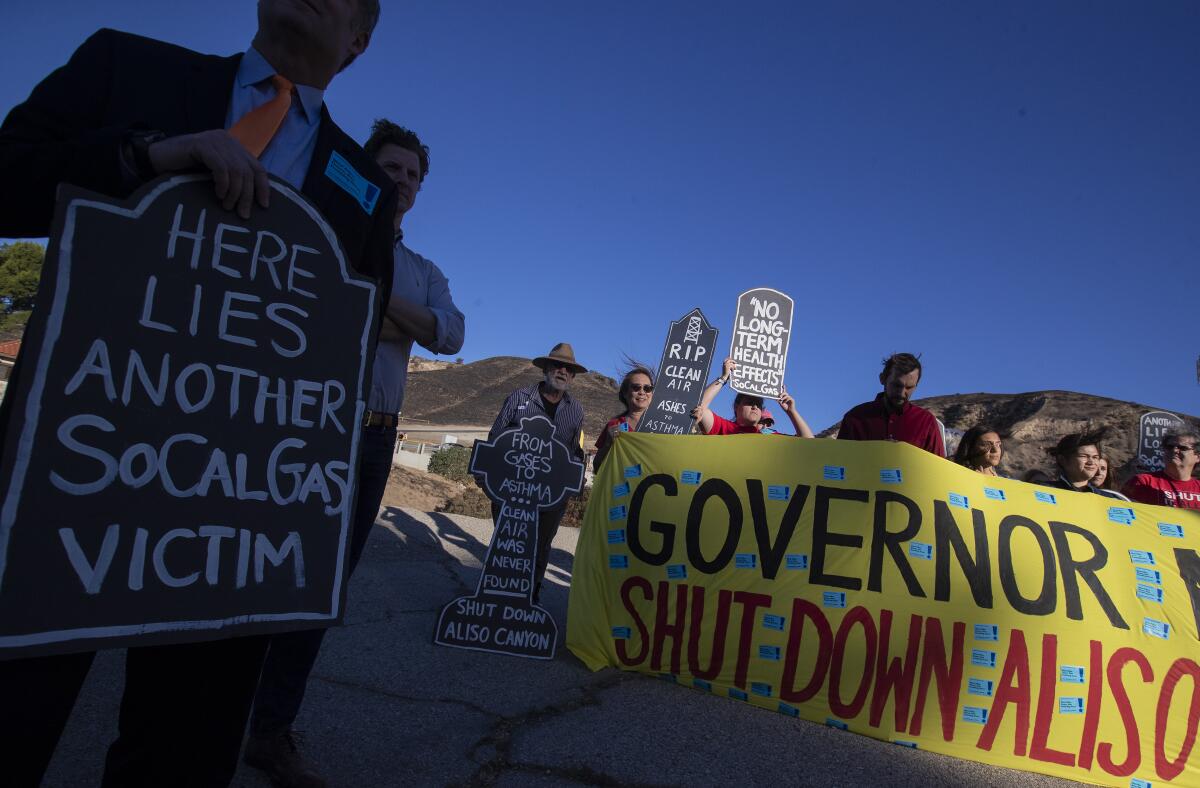
The Public Advocates Office declined the gas company’s offer of partial access to its financial records, demanding full access.
Mike Campbell, a program manager at the consumer watchdog, told The Times it would be difficult to trust that SoCalGas wasn’t hiding something incriminating, because the company has previously provided misleading information about which activities are funded by ratepayers and which by shareholders.
“Frankly, how are you supposed to tell the difference if you don’t look at both?” Campbell asked.
Last month, Campbell’s office asked the Public Utilities Commission to fine SoCalGas $100,000 a day for its failure to honor the subpoena. That would amount to $4.5 million as of June 23, the day the motion was filed, with the amount growing each day.
SoCalGas responded that the request for fines “is an effort to coerce SoCalGas to waive its privileges and First Amendment rights.”
The commission, whose five members are appointed by Gov. Gavin Newsom, hasn’t yet ruled on the subpoena dispute.
A similar fight played out in the commission’s investigation into safety practices at Aliso Canyon, the SoCalGas fuel storage facility that sprung a massive leak in 2015, sickening residents of nearby Porter Ranch and forcing thousands of people to evacuate.
Gov. Gavin Newsom says he’s committed to shutting down Aliso Canyon. But its use has skyrocketed since his election.
In October, the commission issued a subpoena on behalf of its Safety and Enforcement Division, ordering SoCalGas to let safety officials question a company representative under oath.
SoCalGas had alleged that a safety division investigator may have “improperly influenced” an outside consultant’s analysis of the Aliso Canyon leak. The subpoena ordered SoCalGas to provide the “person or persons most knowledgeable” to explain the basis for its allegation.
The utility did not comply, arguing the subpoena was “premature” and “premised on a mischaracterization of SoCalGas’ position.” Two administrative law judges disagreed.
When the Safety and Enforcement Division asked the commission to fine SoCalGas $100,000 a day for failing to honor the subpoena, the same administrative law judges dismissed the request on procedural grounds.
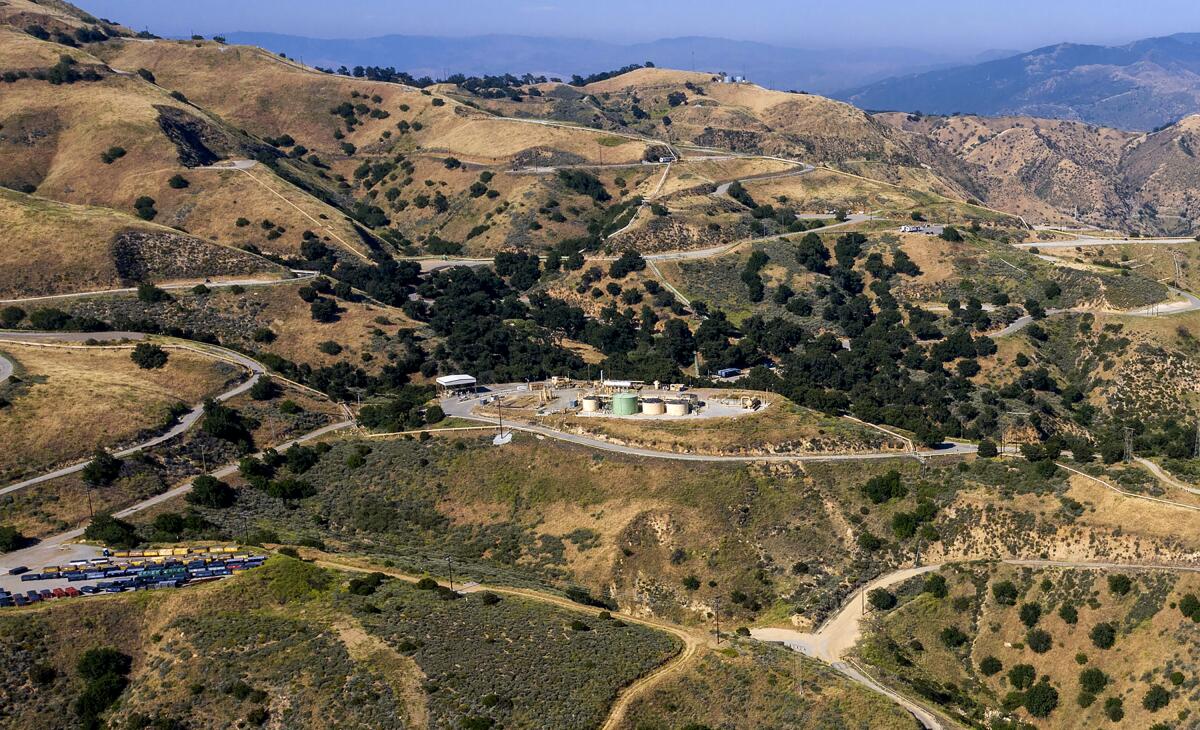
The Public Advocates Office now says the company’s refusal to allow a full inspection of its financial records “is perhaps understandable given its prior unpunished defiance of a commission subpoena in the Aliso Canyon investigation.”
“Why should SoCalGas comply with commission orders when there are no consequences for violations?” the watchdog asked.
Asked to respond to that criticism, commission spokeswoman Terrie Prosper said in an email that the agency “will hold SoCalGas accountable if wrongdoing is found.”
The company has been charging California ratepayers for some contributions to pro-natural gas advocacy groups.
The Sierra Club is also pressing SoCalGas for information as part of a separate Public Utilities Commission investigation.
Documents obtained by the environmental group, and shared with The Times, shine additional light on the gas company’s eagerness to avoid climate policies that could hurt its bottom line. One of those documents — a 2014 presentation prepared for the company’s senior management team — warned that a stricter efficiency standard for gas water heaters, proposed by the California Energy Commission, could have a significant effect on $800 million in annual revenue from residential water heating.
SoCalGas faced “up to $17 [million] in lost revenues and opportunity cost annually,” according to the presentation, which also warned the proposed efficiency standard could help spur a transition to all-electric homes.
“We are taking aggressive steps to address the proposed changes,” the presentation said.
The company’s fears have started to come true: Not only did the Energy Commission approve the stricter efficiency standard for gas water heaters, it later went a step further, adopting rules that make it easier for home builders to use electric water heaters. Since then, 31 cities and counties have either banned or limited gas hookups in new buildings.
The Public Advocates Office is scrutinizing the gas company’s efforts to stave off those types of policies. In at least one city, San Luis Obispo, some of the company’s advocacy was carried out by employees whose salaries are paid by SoCalGas customers, the utility has acknowledged.
“They’re using customer money to obstruct local governments’ efforts to address the climate crisis,” said Matt Vespa, an attorney with the nonprofit law firm Earthjustice who has represented the Sierra Club in regulatory disputes with SoCalGas. “They want to keep California hooked on fossil fuels.”
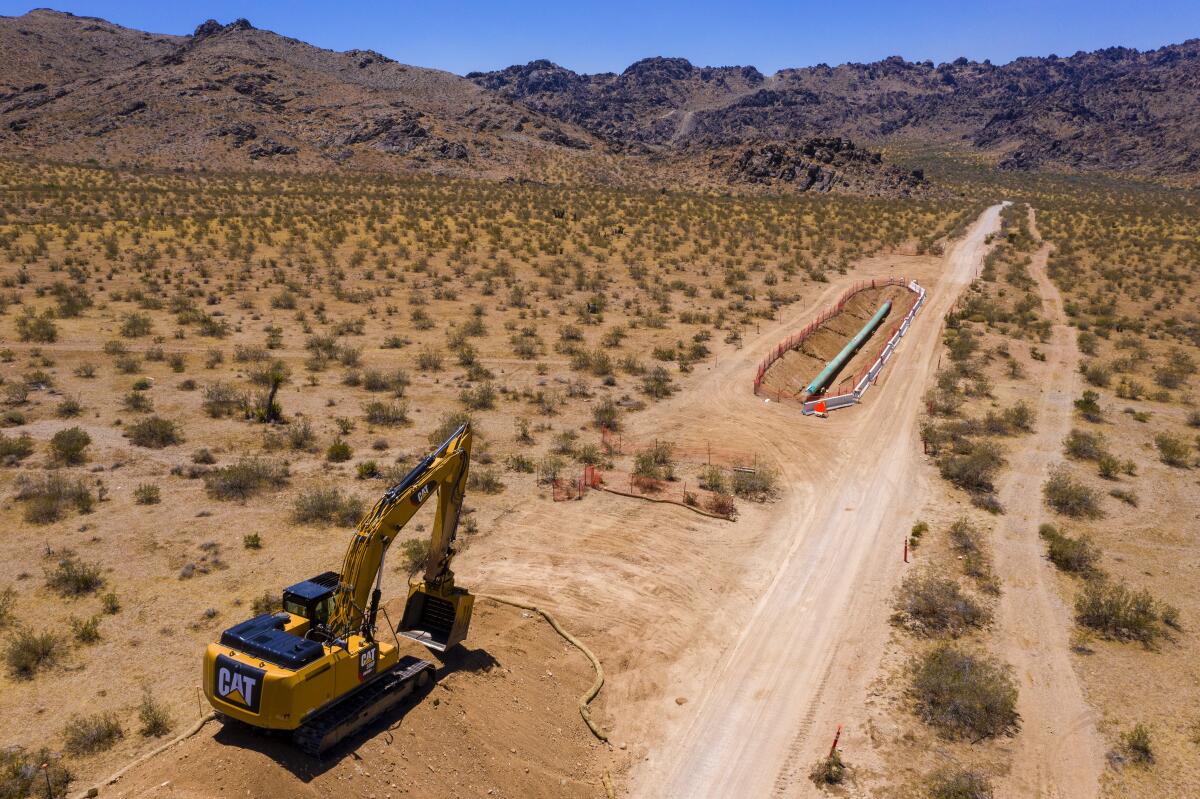
In a written statement, SoCalGas spokesman Chris Gilbride said the company supports California’s climate targets.
“We are lucky to live in a state where innovation is prized and where consumers and businesses have access to a wide variety of clean energy options,” Gilbride said. “Our goal has always been to follow the [Public Utilities Commission] rules and to do the right thing for our customers and the communities we serve. That is why we are requesting the commission clarify its rules.”
“Given the importance of the SoCalGas system to keeping energy bills affordable, the electric grid reliable, and resilient, and to meeting the state’s environmental goals, these issues deserve a forum that promotes public participation and transparency,” he added.
